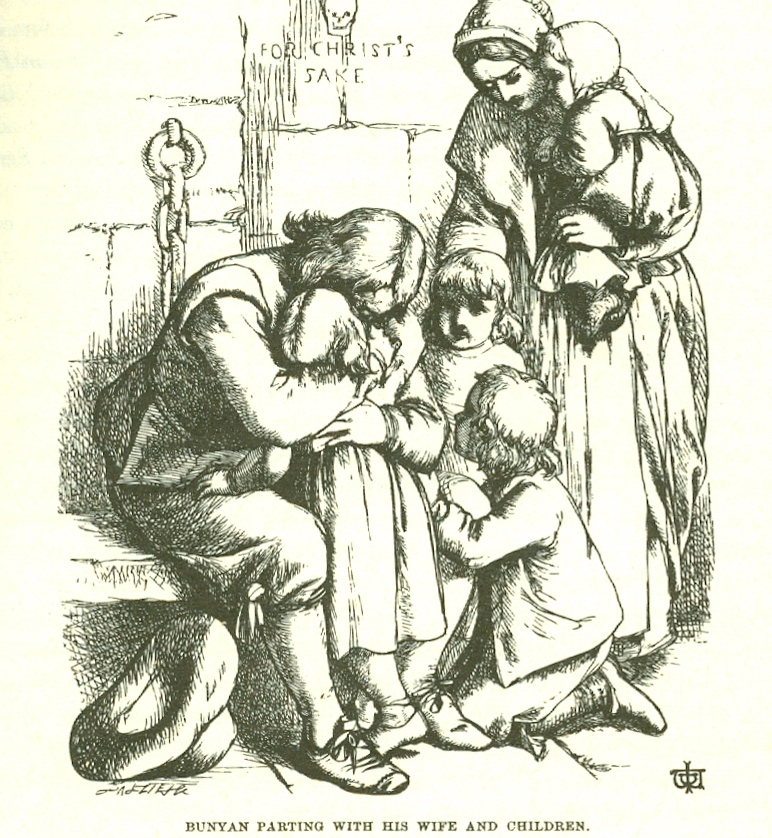Modern prophets with PhD’s and white coats urge us to take more pills than at any time in history to find peace and happiness. They urge therapy from psychiatrists, especially during the recent pandemic. Pundits fill our bookstores with “How to Books” on finding fulfillment and happiness. But it is Jeremiah who 2500 years ago had an accurate diagnosis. He said that they cry, “peace, peace, . . . when there is no peace.” (Jer 6:14)
Want peace, fulfillment, joy? What should we do? “This is what the Lord says: ask for the ancient paths, ask where the good way is, and walk in it, and you will find rest for your souls.” (Jer 6:16) And so in this news series of blogs I’m going to go back to the story of Pilgrim’s Progress from John Bunyan, b 1628.

John Bunyan along with 50 or 60 other evangelicals who dissented from the official religion were thrown into an ancient jail constructed on one of the pillars of a bridge. He spent 12 1/2 years there during which time he wrote the classic Pilgrim’s Progress, an allegory about an ordinary Christian pilgrim travelling from the city of destruction to the gates of heaven. Imagine the agony with which he parted from his wife and four children. The illustrations in this series are from engravings on wood included in an 1861 edition.

The lose of evangelical freedom in those days is a warning to believers in the Gospel during our days as we slowly, ever so slowly see our freedom erode. Fortunately, we still have enormous freedom to speak forth the good news.
Pilgrim’s Progress is an allegory. Although allegory as a form of writing is unfamiliar with many of us in our day; an allegory is a narrative in which a character, place, or event is used to deliver a broader message about real-world issues and occurrences. Authors have used allegory throughout history in all forms of art to illustrate or convey complex ideas and concepts in ways that are comprehensible or striking to its viewers, readers, or listeners. It makes the complex simple, relatable, and easy to understand.
Writers and speakers typically use allegories to convey (semi-)hidden or complex meanings through symbolic figures, actions, imagery, or events, which together create the moral, spiritual, or political meaning the author wishes to convey. Many allegories use personification of abstract concepts.

While in jail for his faith, John Bunyan wrote an allegory about having a dream of a man in rags with burden on his back. The man read from a book which led him to weep and tremble and cry out, “What shall I do?” Although written in 1600’s, Pilgrim represents millions of burdened people today.
(Let me know your thoughts on this subject. If you appreciate this blog, please pass it on. If I can help you spiritually, let me know. Further articles, books, and stories at: Facebook: Eric E Wright Twitter: @EricEWright1 LinkedIn: Eric Wright ; Eric’s books are available at: https://www.amazon.com/Eric-E.-Wright/e/B00355HPKK%3Fref=dbs_a_mng_rwt_scns_share)




























